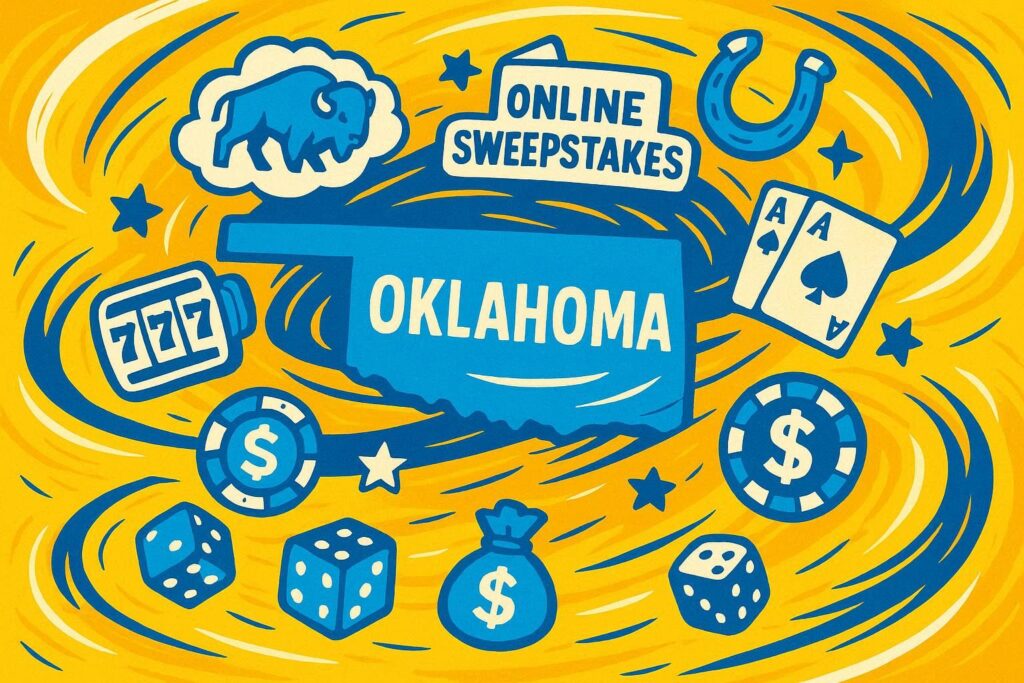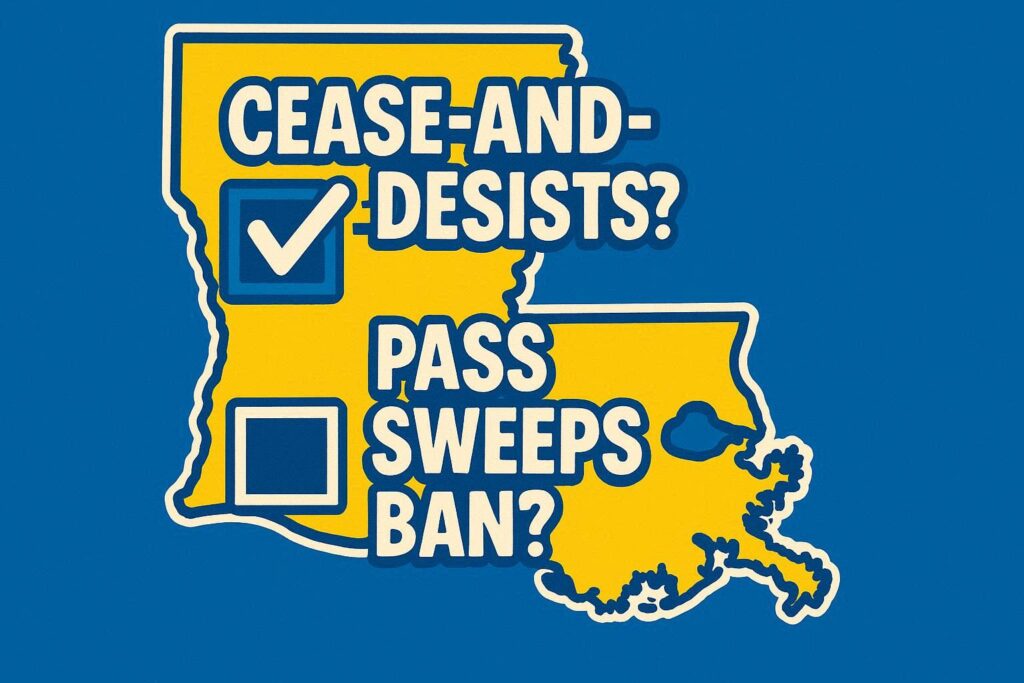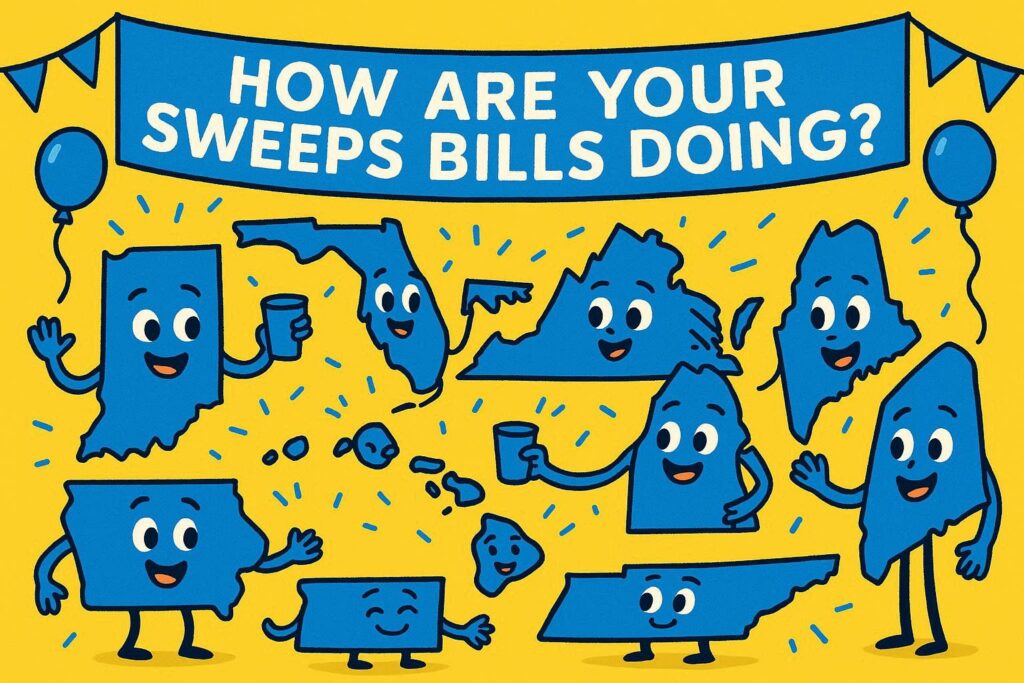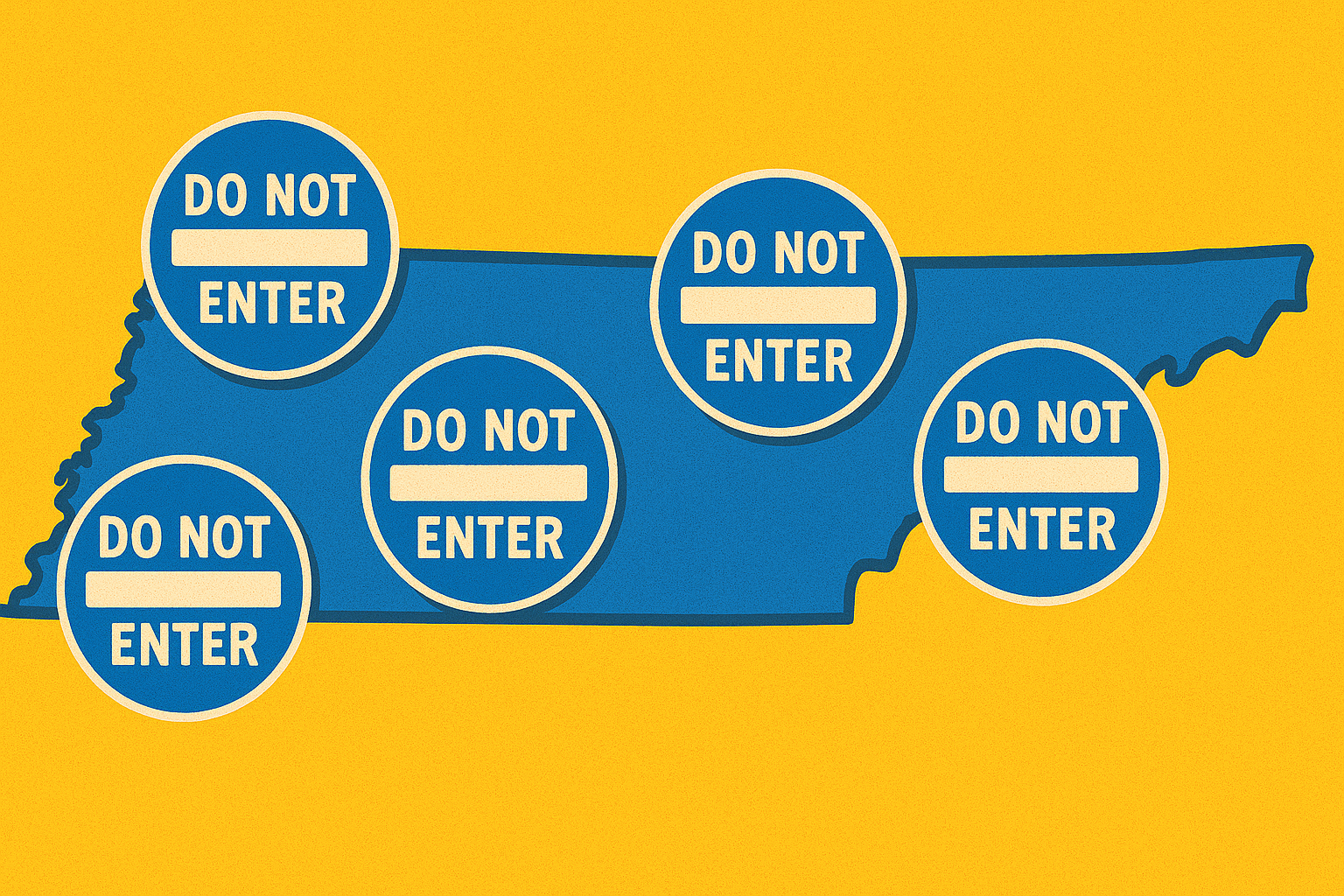It’s not difficult to figure out why the battle over the legality of online sweepstakes casinos in California feels like it’s at a different level than similar battles in other states.
The market size — and impact of its potential removal from access — is massive.
But a new study from an independent research firm in the United States gambling industry suggests the California sweeps gaming market is even larger than we may have thought.
$2.42 billion in sales
Eilers & Krejcik Gaming is widely recognized for its expertise in delivering research on products, markets, and policy trends in the global gaming industry. Previously, much of its work has centered on the real-money gambling sector.
Earlier this month, Eilers & Krejcik published a report, requested by the Social Gaming Leadership Alliance, that looks at the current economic impact sweeps casinos have in California and the potential impact they would have if licensed and taxed.
Part of that analysis included projections for total online sweeps gaming sales in the U.S. in 2025, as well as total sales from just California.
The projections?
Eilers & Krejcik estimates there will be $14.31 billion in online sweeps gaming sales in the U.S. this year — and it projects players in California will generate $2.42 billion of those sales.
Put differently, Eilers & Krejcik postulates that California will be responsible for 17.3% of the sweepstakes casino market in 2025.
That’s … huge.
Here’s how they arrived at that projection:
- California’s large population obviously was a major factor, with roughly 29 million adults aged 21 and older. (Eilers & Krejcik used 21 as the minimum age, even though the majority of sweeps casinos are still 18-and-over.)
- The average disposable income among those eligible adults is $93,992, which Eilers & Krejcik called “strong” — leaving room for more recreational sweeps gaming.
- Finally, most of these eligible adults have internet access — 92.5%, per U.S. Census data.
READ MORE: A Second California Tribe Is Now Opposing The State’s Sweeps Ban Bill
‘The market … has grown substantially over the past several years’
Reminder, we’re talking about sales so far.
As far as revenue, Eilers & Krejcik projects there will be $4.68 billion in online sweeps gaming sales in the U.S. this year, with $790.5 million coming in California. That equates to 16.9%.
So California constitutes 17.3% of sweeps sales and 16.9% of sweeps revenue.
Either way you slice it, calling California crucial for sweeps operators’ bottom lines is an understatement.
Researchers also estimated that, of the worldwide sweeps gaming market, 98% of total revenue is generated in the U.S. So, under the assumption that California is the biggest sweeps market in the U.S. (which almost certainly is the case, as sweeps operators are now leaving New York because a sweeps ban bill was passed there), the conclusion is pretty clear:
California is the biggest jurisdiction for sweeps gaming in the world.
“The market has existed since at least 2012 and has grown substantially over the past several years due to a combination of factors,” Eilers & Krejcik researchers wrote, “that notably include 1) a spike in consumer awareness in 2020 during quarantine market conditions which benefitted online gaming broadly, and 2) increased investment capital into the space.”
Current plus potential economic impact? North of $1.3 billion
The report also discusses the current economic impact sweeps casinos have on California — more than $1 billion — and the potential additional revenue the state could pull in if sweeps casinos are licensed and taxed — potentially more than $300 million per year.
That $1 billion estimate comes from two buckets:
- $802 million in direct economic benefit, via sweeps operators spending money advertising on California-based companies (Google Meta), using California-based payment processors (Visa), and cloud hosting with California-based data centers.
- $208 million in indirect benefit, via the sweeps industry supporting an estimated 1,191 California-based jobs.
As far as additional revenue, Eilers & Krejcik projected a $500,000 annual sweeps gaming license would generate $15-25 million each year, and 7.25% player purchases tax — the same rate as the statewide sales tax — would generate $175.4 million. Combined, that gets the estimate right at about $200 million.
Researchers wrote “it’s easy to imagine” that total eclipsing $300 million if:
- Operators partner with California-based companies to run promotions and advertising campaigns.
- They place ads on channels that require a license to promote casino-style gaming.
- Apps that once operated solely as social casinos — such as Light & Wonder’s Jackpot Party Casino or Zynga’s Hit It Rich! — introduce sweepstakes features.
Suspense hearing on Aug. 29
The bill that would ban sweepstakes casinos in California, Assembly Bill 831, is currently in the suspense file of the Senate Appropriations Committee, which has a suspense hearing on Aug. 29. It’s expected to decide whether or not to advance AB831 to the full Senate that day.
AB831 must clear the suspense file, get approved in a full Senate vote, and then get re-approved by the Assembly because the original version of AB831 that passed the Assembly this spring is completely different from the current version, which was created via the controversial gut-and-amend process.
California’s 2025 legislative deadline is Sept. 12. However, because California runs on a two-year legislative cycle, AB831 won’t fail if it doesn’t progress through all the necessary stages by Sept. 12. It can simply be picked up where it left off when the legislature reconvenes for the 2026 session in January.









